Once a Mile of Retail, Now a Mile of Silence
The most expensive mall ever built in Western Pennsylvania opened for business on July 14, 2005.
It had full-price anchors, five themed neighborhoods, and enough square footage to stretch a mile from end to end. Developers said it would blend big-box power with local flair.
Now, most of it sits quietly. Of all the things to do north of Pittsburgh, PA, walking laps past shuttered storefronts might be the most surreal. Twenty years later, it feels less like a mall and more like a memory someone forgot to finish.
Development, Investment, and Opening Day
In July 2005, the Galleria at Pittsburgh Mills opened in Frazer Township, Pennsylvania.
At 905,000 square feet, it was the largest mall built by the Mills Corporation before that company folded its U.S. portfolio.
This project was the product of a partnership: Mills Corporation handled national design and leasing while Zamias Services, Inc., based in Johnstown, brought site control and decades of local planning attempts.
Zamias had been trying to build a retail complex on that same site since 1981.
The mall cost $285 million and opened with over 150 tenants.
Anchor stores included Kaufmann's, JCPenney, and a full-sized Sears Grand.
Other early tenants ranged from Borders Books to Linens 'n Things.
One early concept that was never completed was a NASCAR SpeedPark near Dick's Sporting Goods.
The mall's interior was divided into five themed neighborhoods, each designed around elements of Pittsburgh's identity, such as steel heritage and sports culture.
The walk from end to end spanned roughly one mile.
For visitors, that meant clear paths for mall walkers and a food court at the halfway mark.
Two small play areas were included as cut-through spaces for families with children.
For developers, it was supposed to signal that this wasn't a typical outlet center.
Every retail space was leased at full price.
Mills Corporation exited the project a year later.
On December 30, 2006, it sold its stake to Zamias, leaving the Galleria as the only Mills-branded mall in the U.S. that Simon Property Group didn't control.
The same year, Kaufmann's was rebranded as Macy's.
At that point, Pittsburgh Mills was fully open, fully leased, and already under new ownership.
However, its offerings now differ from those promised in 2005.
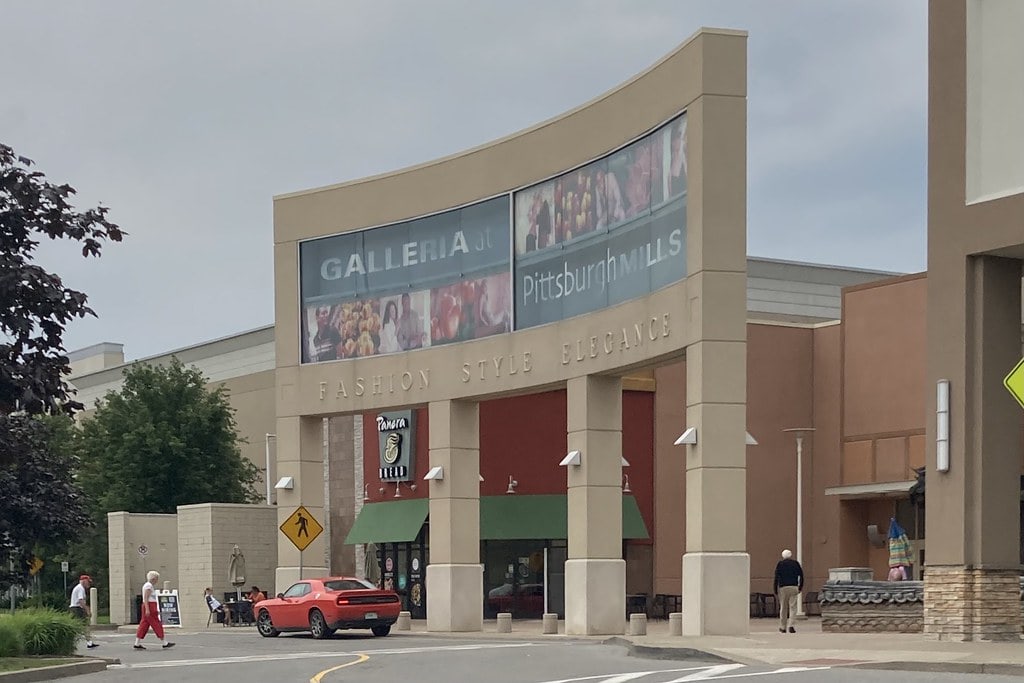
Tenant Losses and Retail Exit Patterns
What followed after 2006 wasn't a freefall, but it was steady attrition.
The entertainment wing took the first hit. Lucky Strike Lanes, one of the marquee leisure tenants, closed after about a year.
Dingbats, Abate Seafood, and a banquet hall filled its space, but those were substitutions, not upgrades.
The original buildout promised an indoor NASCAR SpeedPark.
That never happened. The parcel near Dick's Sporting Goods was left vacant, and the space that would have connected it to the mall was sealed.
Closures came in batches.
Linens 'n Things closed in 2008, Borders Books lasted until 2011, and Sears Grand, one of the few full-scale anchors to launch with the mall, ended its run in 2015.
By that point, the Galleria had already started leasing to non-retail businesses.
Real estate offices, military recruiters, a pharmacy supply outlet, and a gym moved into former storefronts that used to carry branded apparel or electronics.
The center's cinema followed a different path. Cinemark shut down in May 2020 during the national economic shutdown.
In early 2021, Goodrich Quality Theaters revived the space under new branding.
JCPenney, once a headliner tenant, closed its Pittsburgh Mills location around October 2020 as part of a nationwide reduction involving 154 stores.
By 2022, Champs Sports and Claire's had exited. AT&T left in early 2024.
Panera Bread is likely preparing to relocate from its current location inside Pittsburgh Mills to a larger space with a drive-thru in the adjacent Village at Pittsburgh Mills shopping plaza.
Ownership Transfers and Legal Disputes
On January 13, 2017, Wells Fargo acquired Pittsburgh Mills at a foreclosure auction for $100.
The bank already held the mortgage. That wasn't a typo or a procedural placeholder - it was the confirmed sale value.
A decade earlier, in 2006, the mall had been assessed at $190 million.
By the end of 2016, public records showed its appraised value down to $11 million.
Namdar Realty Group purchased the property in 2018.
Based in New York, the company has acquired dozens of enclosed malls across the U.S., many of them distressed.
Critics describe its business model as tax-avoidant and maintenance-light.
At Pittsburgh Mills, Namdar's pattern followed that reputation.
In 2023, Allegheny County placed a large portion of the property under threat of sheriff's sale due to $11.5 million in unpaid taxes.
That process was scheduled to be executed by October 2.
On September 29, Namdar paid the full balance. The sale was canceled.
The situation escalated again in September 2024.
Frazer Township filed suit against Namdar Realty Group and affiliated LLCs over the failed maintenance of privately owned roadways.
Township officials claimed those roads were in dangerous condition, with potholes large enough to obstruct emergency vehicles.
The roads in question serve not only the mall but also Lowe's, Sam's Club, and Walmart - all located on adjacent parcels.
The township's estimated repair costs totaled $4.5 million.
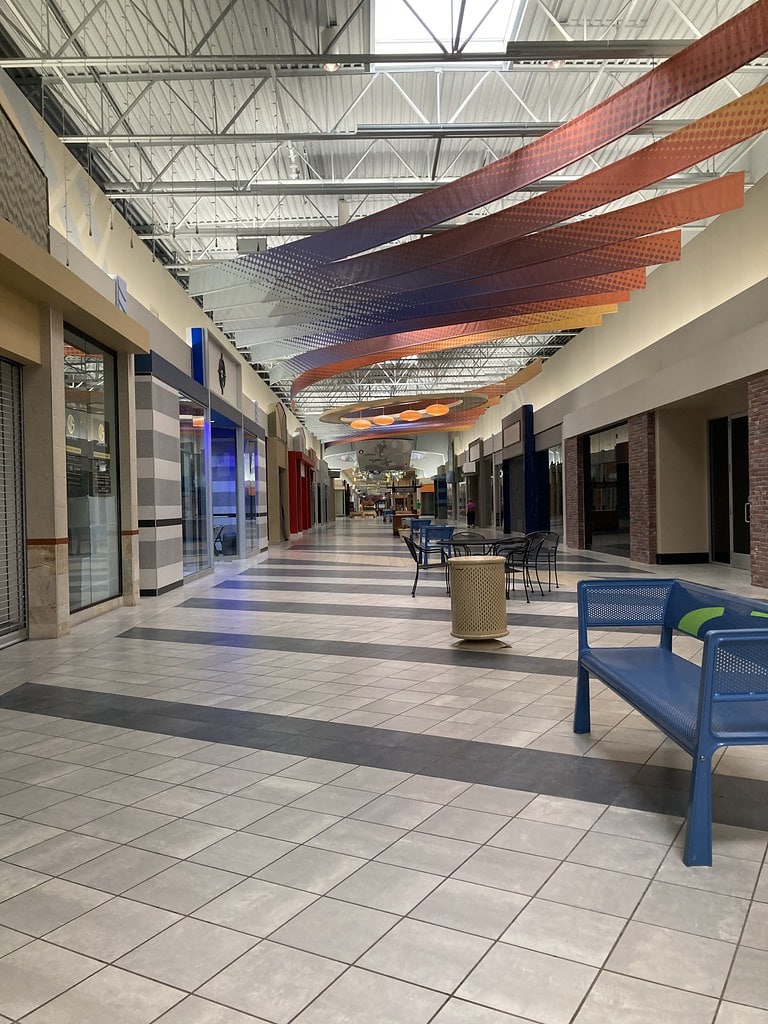
Retail Vacancy, Relocations, and Leasing Decline
By early 2025, retail tenancy at the Galleria at Pittsburgh Mills had dropped to around 20 stores.
Of those, only five operated under national chains: Macy's, Dick's Sporting Goods, Bath & Body Works, Jo-Ann Fabrics (closing in 2025), and T-Mobile.
Storefronts that once carried holiday displays now held papered-over windows or nothing at all.
The mall's official directory had stopped matching reality.
Tenants listed on maps were long gone.
The food court no longer serves food.
At its peak, it housed two full-service restaurants, ten counter-service kitchens, a Starbucks, and a handful of mobile vendors.
By 2023, every one of those had shut down. Mallgoers still used the seating area, but only for rest or phone calls.
Macy's and Dick's remained the only functional anchors.
That status was already tenuous. In early 2025, Macy's put its store property up for sale.
The listing did not confirm a planned exit but raised that possibility.
M@C Discount now occupies the former Sears Grand footprint.
At 165,000 square feet, it is the company's largest location.
The space functions as a fulfillment and pickup site for returned and overstocked goods sold through online auctions.
Bidding begins at $1, and customers complete transactions via on-site retrieval.
Gundel's Fun Zone is listed on the mall directory with an "Opening 7/1/2025" label.
JCPenney, Sears Grand, Borders, and the rest of the original large-format lineup were already gone.
Retail vacancy inside Pittsburgh Mills stayed well above 75%.
Several non-retail tenants operate inside the Galleria at Pittsburgh Mills.
Citizens School of Nursing offers accredited healthcare education programs.
Riverside Church hosts worship services and public events.
USA Insurance provides a storefront for personal and commercial coverage.
Tang Soo Do Karate runs a martial arts school with scheduled classes.
Turf Attack offers indoor space for parties and fun activities.
The Frazer Township Police Department also maintains a location in the complex.
These tenants reflect a shift in leasing strategy toward steady-use services instead of traditional retail.
Outside the mall, the Village at Pittsburgh Mills told a different story.
Acquired by First National Realty Partners in 2021, the adjacent shopping center spanned 161,000 square feet and held 16 tenants as of 2024.
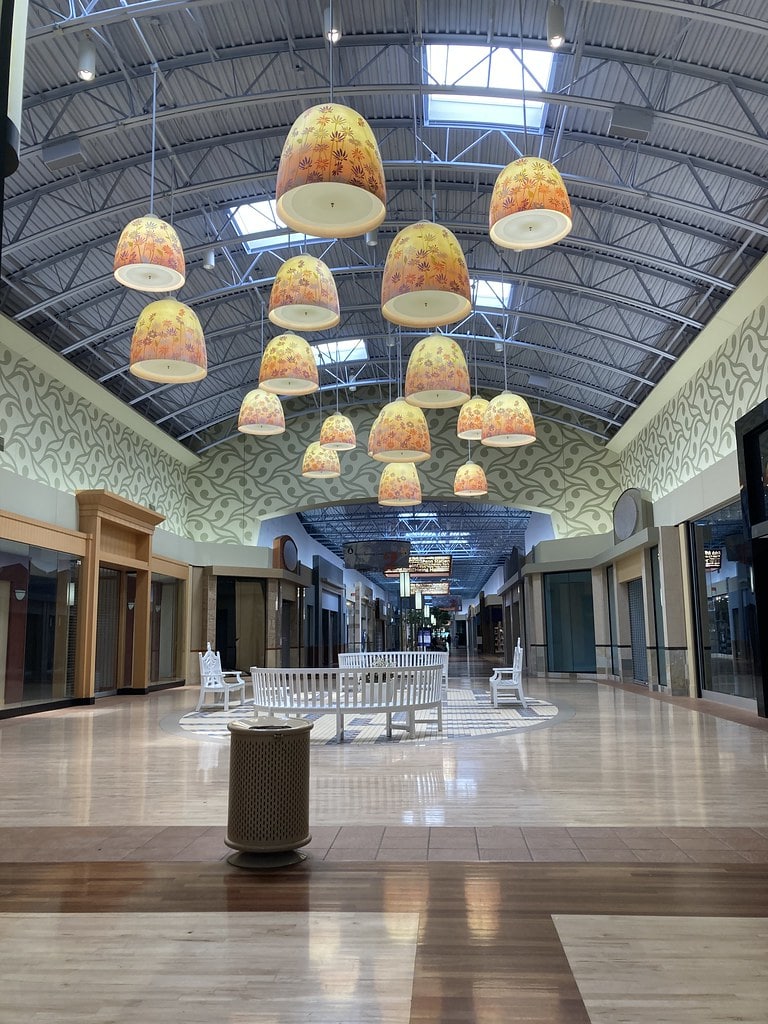
🍀

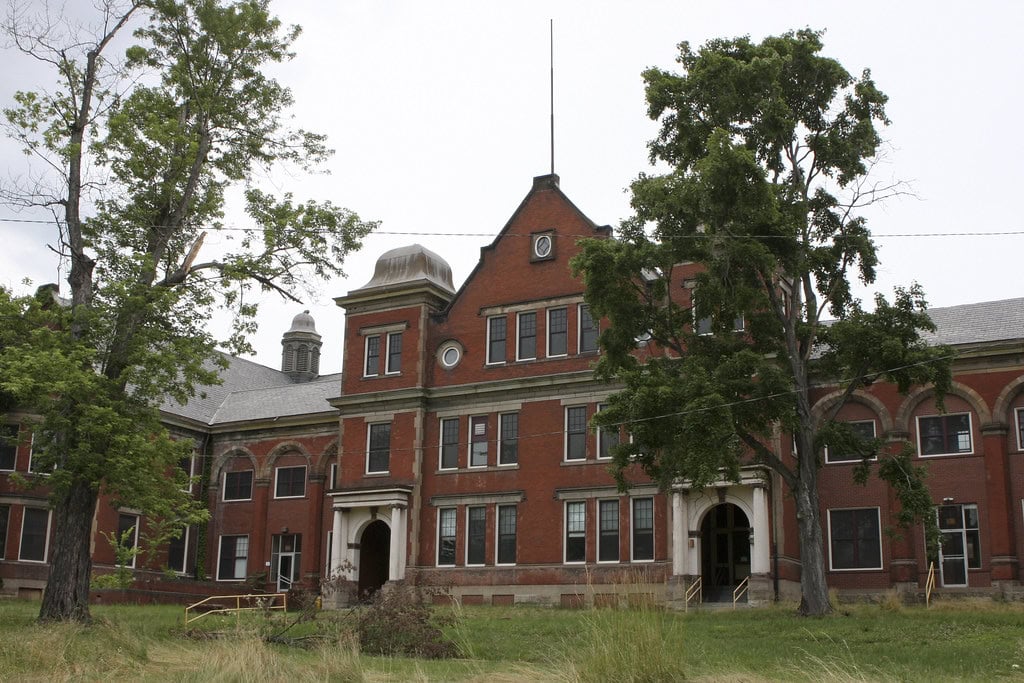
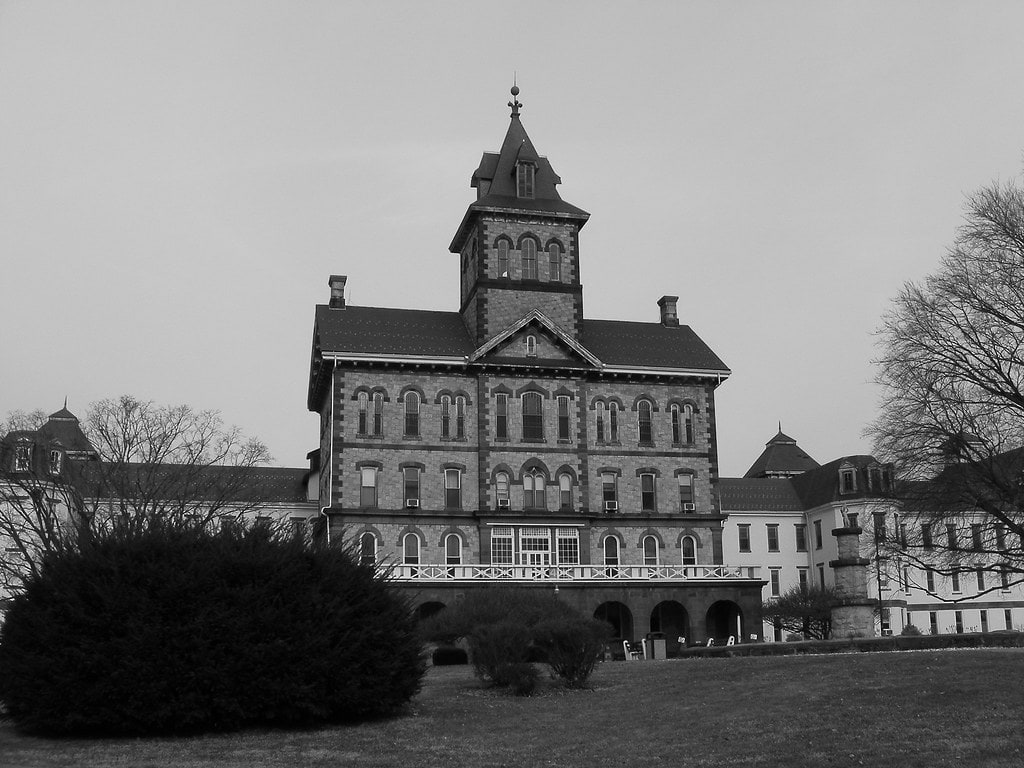
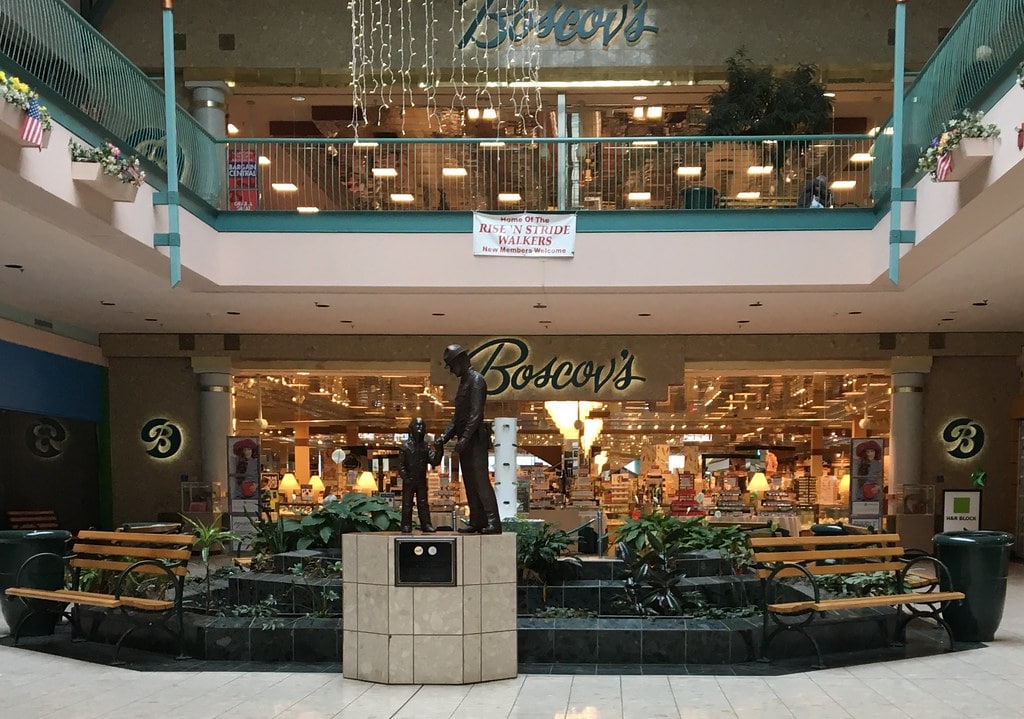
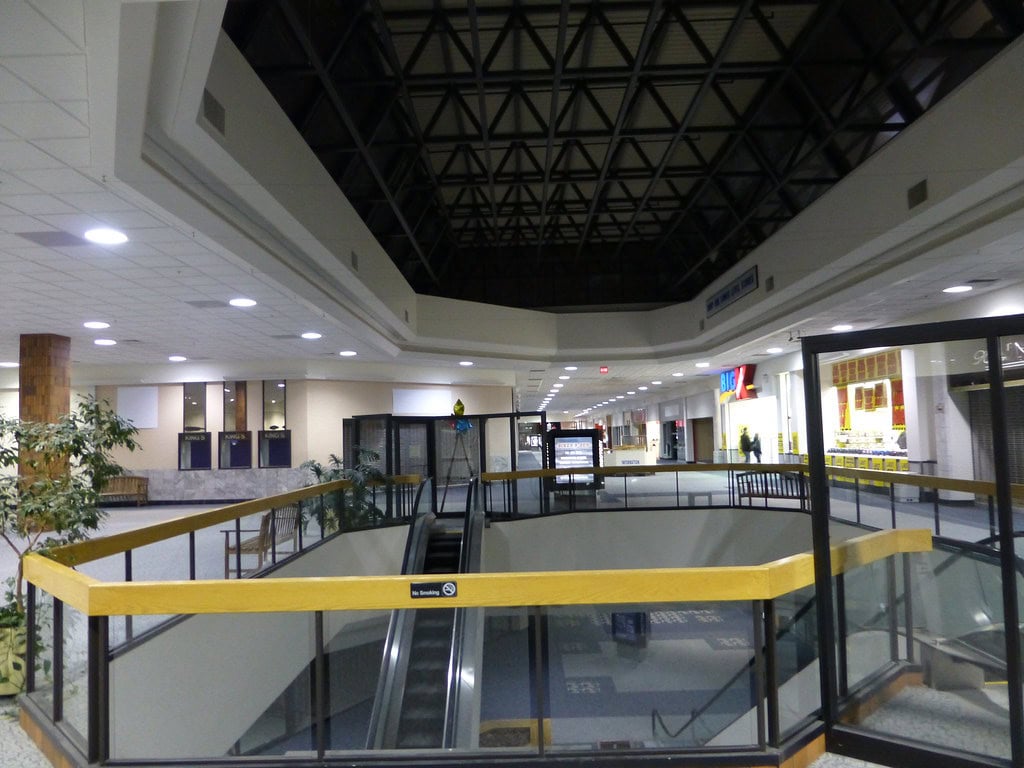

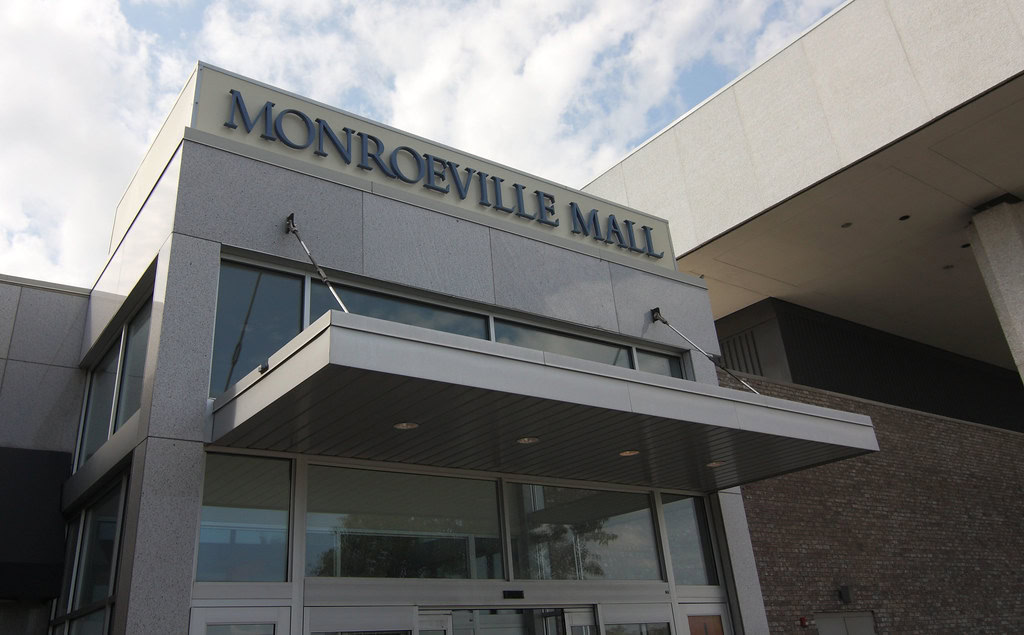
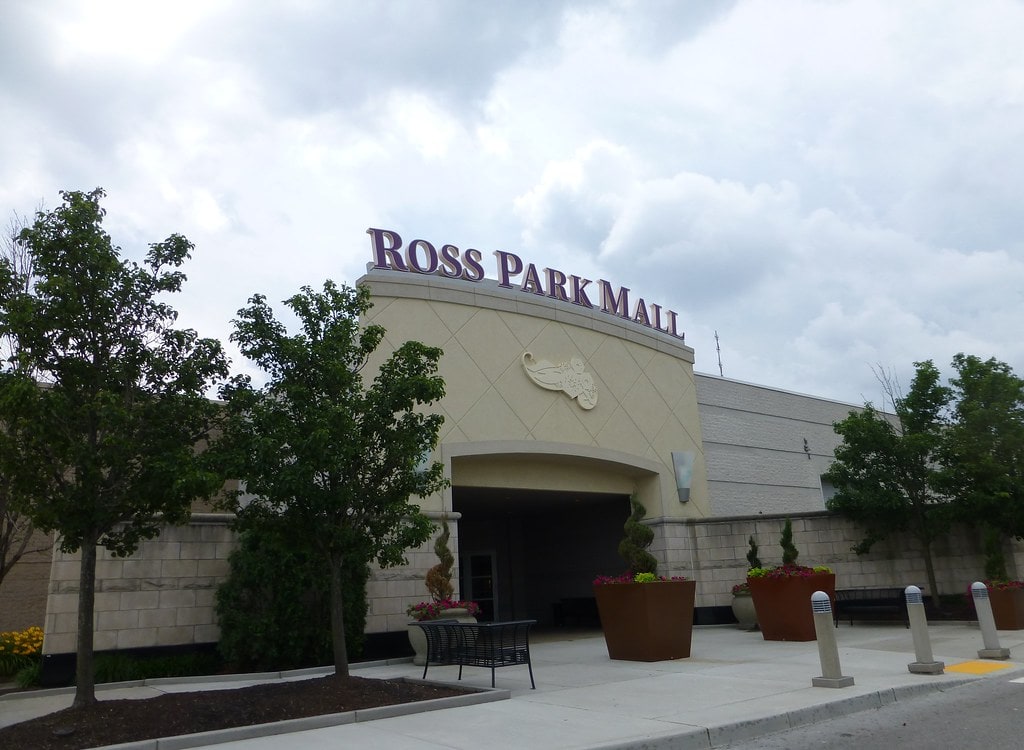
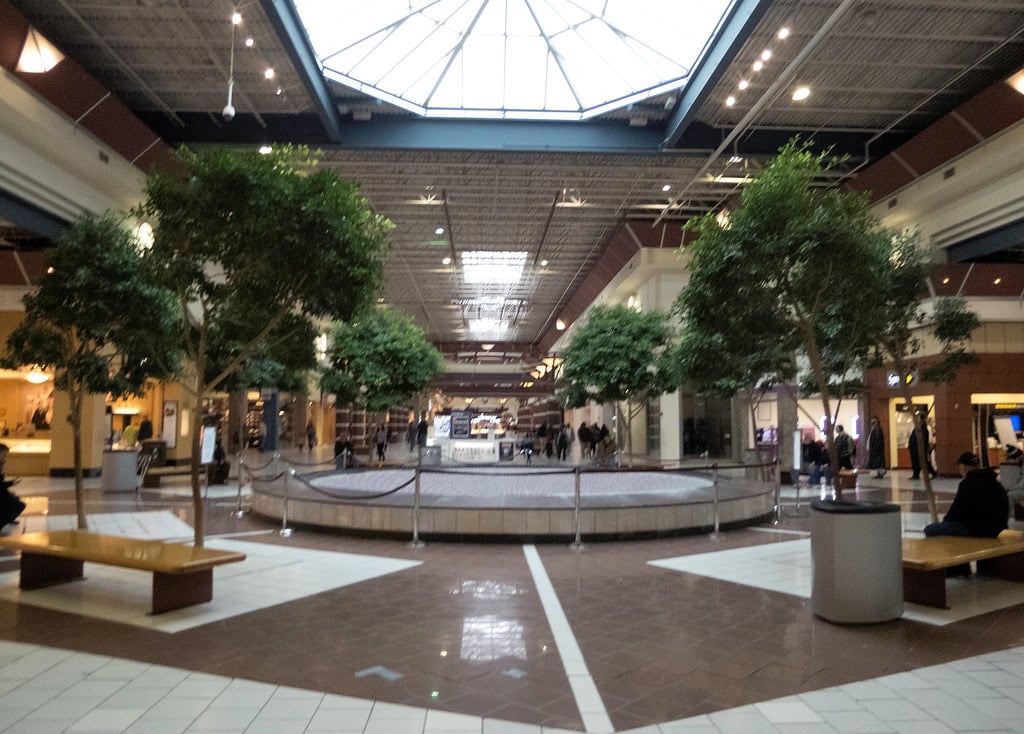
I understand that malls have competition from online retailers but there is still a need to touch and try on merchandise. It appears that when the Mills Corporation went under, our mall suffered because it offered some high end stores that weren't a good fit for our area. An outlet business model like other Mills malls would have been ideal. Consider that it is built on Rt. 28, which leads directly into downtown Pittsburgh, as well as, has quick access to the PA turnpike, and you could have easily brought shopping day tours to the venue. The mall is one of, if not the newest in our state and is unique. The area surrounding the main mall is already developed and ready for new storefronts to be built. We had been told that this is where the outlet centers for the mall would be located. I say save your mixed- use developments for the older, run down facilities and find someone to try and rebuild this space for retail. It is very needed in our area and may help bring business back in some of the small towns in our area as well. To me, it appears someone, some entity should be checking into this and the potential of drawing in retailers once more.
Many thanks for your well-informed commentary. I appreciate your insightful analysis of the challenges faced by Pittsburgh Mills and the opportunities it presents. Your vision for a retail-focused revival and the mall's unique features and prime location could foster positive growth for the surrounding communities.
I think along with many people I have spoken to think to revitalize this mall,the owners should try to turn it into a outlet mall. We think it would’ve a huge draw for the location being indoors. But, keep the flagship stores that are still there. There are no indoor outlets in this area. New York has many successful locations! And definitely no Dollar Stores! Thank you.
Thank you for sharing your perspective on transforming Pittsburgh Mills into an outlet mall. Your idea of creating an indoor outlet shopping destination while retaining the flagship stores could attract more visitors and revitalize the mall.
we have a Mall in Johnstown but a lot of stores left and a new ownership took over but it don't have very many stores in it the Walmart in Johnstown is the only store that people go to the problems are they get things from overseas like close and the sizes are not right there size are different than our us size and not a very good choice either
I'm also used to wearing clothes that fit according to US sizes. It's frustrating when I buy clothes that don't fit me well. Unfortunately, this has been a common issue in some stores lately.
I think Pittsburgh Mills Mall has great potential. But always said that a gas station was needed up there. like Sheetz or getgo. Sam's club has one an but it's for members only. Plus if they had something in the mall like a place to go to on the weekend like a dance club or skating rink for family to spend time together. It should be productive and an is needed. Even a big chain grocery store. But that's just. my opinion. I really wish they would have opened up a public pool. that would have been great. Have a wonderful day 😊
Thank you for sharing your thoughts on the potential of the Pittsburgh Mills. Your ideas about adding a gas station, dance club or skating rink, and a big chain grocery store are all interesting and could enhance the mall's appeal to visitors. Also, thinking about the potential for growth and revitalization in a community is always exciting, and your suggestion of a public pool is incredibly fascinating.
Pittsburgh Mills Mall has the foundation , They should put a a place to watch movies Theater , A place with different games for the kids could play ,gas station Old Navy , Jc Penneys , Hills department store other than Sams Club , A Goodwill or Salvation Army store , Spencers not expensive clothing store , it just so many stores & food places to go eat , dining rooms even a hotel for people travling . Thank you
I appreciate your innovative suggestions. These additions could make Pittsburgh Mills Mall a one-stop shopping, entertainment, and dining destination. Thanks for your comment.